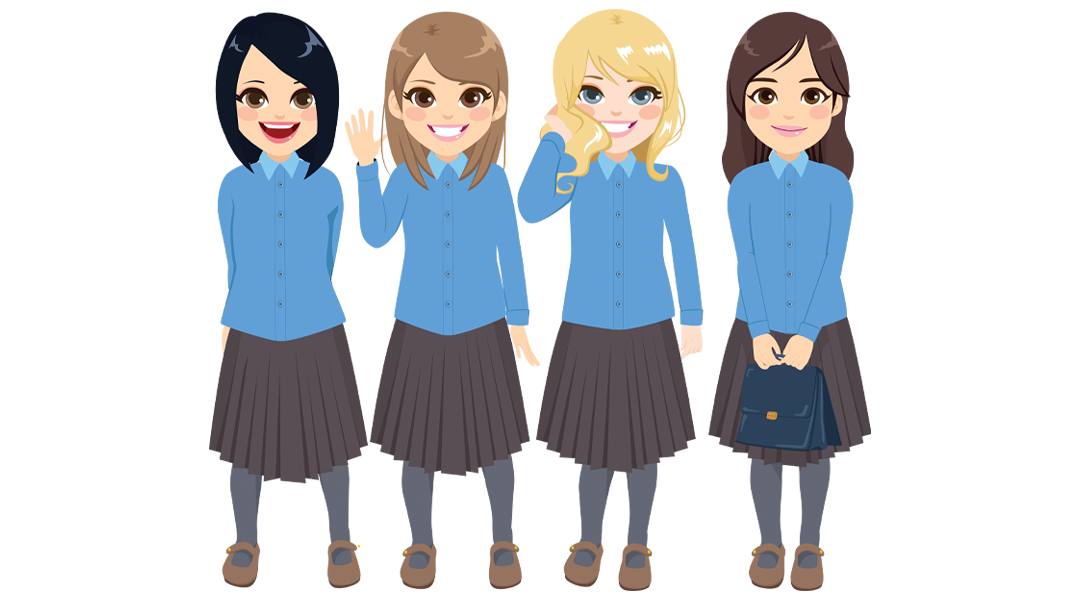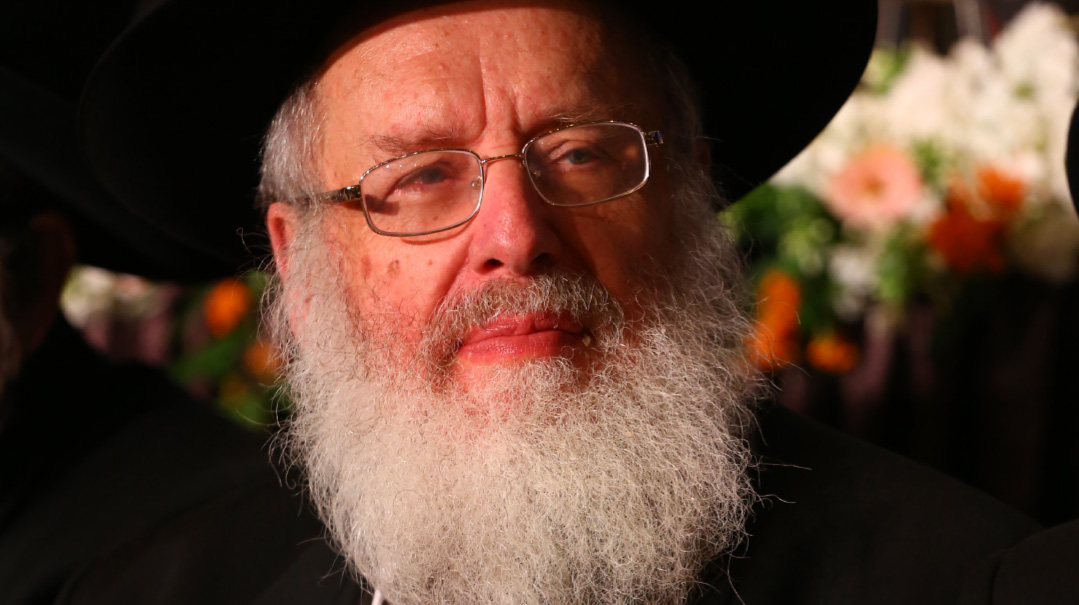Teen Speak

Today’s teenagers sound like they’re speaking a foreign language. Because they are. From overly casual word choices to abbreviations and gross exaggerations, here’s how language impacts your teen’s life

“That was savage!”
Uhh, thank you?
“I’m feeling hangry.”
Should I call the doctor?
“Why so salty?”
Wait… are you talking about me — or food? Is that the opposite of peppery?
If any of these phrases leave you scratching your head, you’re probably not a teenager. But if you spend time around teenagers, you might have noticed they seem to be speaking a different language, one punctuated with:
- Words that you thought you could define — like salty or extra
- Abbreviations or shortened forms of familiar words — like sus and perf
- New concoctions which you can’t begin to comprehend — like hundo P. or finna
Not to mention their extreme exaggerations of their current state of mind: “I’m dying!” “I’m gonna kill her!” “My life is ooooooooooooooover!”
What's happening here? Is this normal teenage behavior?
For parents especially, the way teens adopt another manner of speaking is puzzling and disturbing. Parenting experts constantly emphasize the importance of open communication. But how do you communicate with someone when you don’t speak their language?
Furthermore, teen speak grates on the ears of those of us who aren’t part of their generation. “Use proper English!” many a grandmother has chastised her chatty granddaughter.
How does this funky manner of speaking impact the long-term language development of teenagers —and how they ultimately function as adults?
The Development of Language
Relax. Your child is normal.
Depending on your age, you might remember when words like nifty or groovy were in vogue, or totally rad and coolness. Some of these phrases now sound silly to our ears, whereas others seem normal. That’s how language works — there’s a natural ebb and flow to it, with words falling in and out of popularity. Your teen, who thinks he and his friends are so cutting edge, may be surprised to learn, for instance, that “salty” originated in the 1930s. And “I can’t even”? Singer Bob Dylan crooned that line back in the 60s.
For as long as language has existed, it's been evolving. Of the approximately 7,000 languages around the world, linguists describe some languages as “living,” while others are “dying.” We, every one of us, determine how language develops and whether it thrives or fades away.
Do you walk every morning to the omnibus stop? That’s what the multiple people-carrying vehicle used to be called, but people started shortening it to bus — and it stuck. Words, especially slang, fade in and out of popularity. Many see language changes as a bad thing — particularly people above a certain age — complaining that it “corrupts” language and makes people ignore grammar.
That’s not the case, says Mary Kohn, linguistics professor at Kansas State. “Playing” with words, as she calls it, gives people the opportunity to practice, to build vocabulary, to add depth and meaning to their language. A rich, vibrant language gives you more ways to express yourself.
Defining Social Identity
“The limits of my language mean the limits of my world.” — Austrian philosopher Ludwig Wittgenstein.
I wear my Chicago roots proudly every time I drive my “car,” drink “pop,” or wear my “gym shoes.” I like being from the Midwest. And teenagers are no different when it comes to openly displaying who they are with their speech.
“Language is a proxy for identity,” says Australian linguist and professor Daniel Midgley. “We speak like the people we speak with, whether consciously or not.”
“Having their own language helps teens define their subculture,” says Mrs. Aliza Feder, mechaneches in Bais Yaakov Machon Orah in Passaic, New Jersey, noted speaker, and author of several books, including Six Diaries, Word Watch, and most recently, Tech Talk. “They need breathing space and if this does it for them — as long as they’re not saying anything bad or offensive — great!”
Rena Lauer, a high school English teacher with a degree in English linguistics, recalls how her students would relish using a term she wasn’t familiar with. “They’d say about a character in a book — ‘He’s so salty!’ I’d see them kinda smile at each other, with this satisfaction that the teacher has no idea what they’re talking about. It wasn’t malicious; they were just pleased that they have their own language.”
Grinning smugly to each other about the words they use demonstrates a key value of language: It connects people — we’re part of the same group; we get each other. If you look at parshas Noach, that’s one reason why Hashem introduced a multitude of languages — to break up the people who were building the Tower of Bavel.
Saying the right words in just the right way allows anyone to fit in, but especially teens who use language to a large extent for social purposes. (Adults use language more for economic purposes.) According to linguist Mary Kohn, modifying language helps teens bond with their peers. “It’s very important for that social moment,” she says.
“Using the right words is like buying the shoes that are in style or singing the popular songs,” concurs Chedvi Perr LCSW, social worker at Hillel in Deal and in private practice in Lakewood, New Jersey. “It shows the people around them, ‘I’m in the know.’ ”
Interestingly, this social angle of language shifts doesn’t start at 13. While teens play with language quite a bit, Kohn says another age group appears much more significant when it comes to experimenting with creative ways of communicating: age three or four, when kids start school. That’s the snapshot in time when they leave the sheltered cocoon of mostly adult communication (save an older sibling or two) for an environment where they spend more time listening and interacting with their peers.
Their communication patterns are now influenced more by kids their own age than by adults. This will continue throughout their school years, as they spend more time hanging out with and mimicking their friends.
This isn’t too surprising to me, considering my kindergartener has somehow adopted the cringeworthy pronunciation “core” for automobile. “Say ‘kahr!’ ” I implore. (He generally obliges. I’ll fix him yet.)
What Do You Mean?
Whether a word like hangry or finna is “real” or not doesn’t matter IRL (read: in real life). What matters most is that listeners understand its meaning — because that’s one of the main reasons we use language. To communicate.
Without language, I couldn’t write this article; you’d have no way of knowing the thoughts and ideas I read and spoke to people about and how they’re going through my head. But if this article was full of clichés and idioms, well, you might still not grasp what I’m really trying to convey.
That’s a major problem with teen slang today. It’s not communicating all that much.
While linguists explain that creating slang helps languages grow, using the same words as everybody else because everybody else is using them actually limits your expression. And teens do that. A LOT.
Because teens are all using the same exaggerated words, they’re not conveying the issue at hand. They’re not pushing themselves to describe their independent thoughts.
“Look at the expression OMG!” says Mrs. Malka Harris, veteran middle-school and high-school teacher and Dean of Students at Margolin Hebrew Academy’s girls’ high school in Memphis, Tennessee. “What are you trying to convey with OMG!? Are you upset? Happy? Stressed? It can have many implications.
“The way you would interpret OMG! into defined words offers such a different expression than just using the abbreviation. It gives a much clearer glimpse into what you’re really feeling and allows for more connectivity.”
Or take the girl in Mrs. Lauer’s literature class who uses the word “salty” to get a friendly nudge from her classmates. “When she has to sit down and write and she can’t use slang, she’s stuck,” says Mrs. Lauer. “She’s not practicing getting that kind of language out. She’s not thinking about her opinion on things.”
Mrs. Lauer offers another example: “I hear ‘it’s not normal’ a lot. The girls don’t know how else to describe their reaction or to explain what happened, so they just say, ‘That’s not normal.’ ”
Complicating this further is the teen’s natural propensity towards black-and-white thinking. Everything is amaaaazing or devastating. With few gradations in feelings and experiences, they incline toward exaggeration.
“There are so many ways to describe an emotion and we’re so used to describing it as mad, sad, and glad,” says Chedvi Perr. “There’s furious, frustrated, annoyed, disappointed, jealous, hurt — every one of these words shows a different level, a different feeling.”
The Darker Side
The exaggerated expressions common to teens skew toward the gloom and doom, with negativity and self-deprecating talk.
This isn’t unexpected, considering a teenager’s life. “They’re transitioning into a more independent stage of life,” says Mrs. Harris. “They feel like everything’s very stressful because for them it is; they’re engaging in life with a more intensified level of responsibility and accountability than they ever have before.
“The feeling of overwhelm combined with them needing to put more time into their studies, navigating the fluctuating dynamics of their relationships, and not sleeping enough, creates a perfect storm for negative self-talk.”
“So when a teen is feeling frustrated,” says Mrs. Perr, “but doesn’t have the words to express herself — she might say, ‘I want to kill myself!’ ”
To a parent, that sounds terrifying. After such outbursts, when anxious parents turn to Mrs. Perr, she’s generally quick to reassure them. “Look at the full picture of the child. Is she a happy kid overall? Functioning? Has healthy relationships? If so, and she’s under a lot of stress or pressure right now, we’re usually not concerned that she’s actually thinking of taking her life.” Of course, for a child who is struggling, professional help is required ASAP.
Even when the teen is not serious, it’s important to emphasize the weight of those words. “Tell your child, this is not a joke,” Mrs. Perr says. “We don’t just say ‘I want to kill myself.’ That’s a really harsh way of saying you’re upset.”
In addition, overly dramatic vocabulary overblows the situation for the child themselves. “Such strong terminology — ‘She drives me crazy!’ ‘I hate myself!’ — creates more emotional reactions within them, and it’s unnecessary,” says Mrs. Harris. “It saps too much energy.”
This consistent focus on the negative also colors their lives, casting everything in a dark light, including themselves. It’s difficult, for instance, to go into a test with the right frame of mind when you’re telling yourself over and over again you’re going to fail.
Mrs. Harris tries to show the girls how speaking negatively to themselves deflates them. “When I hear the girls speaking this way, I make sure they rephrase and reframe. I’ll tell them, ‘You’d never speak to your best friend that way. You’re your own best friend, you need to be your biggest advocate. You can’t speak to yourself that way.’ ”
Instead, Mrs. Harris pushes them to use what she calls “building” words: positive words that are respectful to themselves, that offer encouragement and foster confidence. “I’ll catch them in the moment and say, ‘Let’s temper our speech. Try that again, in a more solution-oriented format. Let’s use terms that put the feeling in perspective.’
“For instance, instead of saying ‘I’m gonna die!’, let’s say ‘I have this challenge, and I need to figure out how to work through it.’
“My hope is that once they accustom themselves to speaking that way — even in their own thoughts — it will extend to the way they interact with their peers and create a healthier environment for everyone.”
Cultural Shifts
This underscores the unavoidable power of environment in shaping speech patterns. Mrs. Harris, who spends the majority of her day around teenagers, finds herself sometimes adopting their phraseology.
“I remember the first time I heard someone exclaim, ‘What are you saying??’ I thought it was rude and attacking. Now, at times, I catch myself saying it when I don’t fully understand someone. Once it becomes habitual, it’s hard to break out of and requires retraining.”
We have limited control over our environment. Our creative little darlings are not coming up with these words on their own, after all. They’re seeping in from the culture around them.
“It’s a trickle down from secular culture,” Mrs. Lauer says. “Even if our teens aren’t watching television or movies or reading secular books — someone they talk to or someone they’ve been exposed to is.”
Other common slang words are often fraught with connotations that are base, depraved, or loose. Yet they slip, unknowingly, off the lips of our precious youngsters.
“They pick up these words that just get woven into the conversation. And to the listener, it’s like, ‘Whoa! Why is a Bais Yaakov girl saying this word?’ ” says Chedvi Perr. “But they don’t even realize it. It’s become such a part of the lingo.”
Even pareve, seemingly innocuous words — like the cultural appropriation of bathroom terms to refer to anything undesirable — reflect a dulling of respect in the culture at large, a general shift in a more casual, substantially more irreverent direction. (Even the way I am writing this article, with looser grammar and a more chatty tone, wouldn’t have been acceptable years ago.)
“This is a world thing, not a frum thing,” says Aliza Feder. “President say and do things that ten years ago, presidents would have never done. Princesses say and do and wear things that princesses never would have years ago. There’s an erosion of the ability to understand certain levels of kavod.
“When you try to explain this to the teens, they can’t understand it, although they may be good and respectful and will take your word for it and do what you say. It’s a reflection of a society they’re growing up in.”
And by society, Mrs. Feder includes the vast influence technology has on communication standards.
“The standards for whatever you’re willing to say always fall when you’re facing a screen as opposed to a person,” says Mrs. Feder. “Everything is shortened. LOL. TTYL. Because of this, people will use abbreviations for words that they’d never say out loud. Or send memes with hilarious punch lines that include questionable or harsh language; they’d never make that joke in real life, but because it’s prettily packaged within the meme, they just press forward.
“All of that brings the language down. The constant exposure to anything will make it less offensive.”
With teens, this inability to distinguish offensive language is compounded by their young age and minimal life experience. In Mrs. Rena Lauer’s English classes, for example, it’s not uncommon for flippant medical diagnoses to come up. “A character changes his mind, and I’ll ask, ‘What’s happening here?’ They’ll say, ‘Oh, he’s bipolar.’ ” Mrs. Lauer says. “Or they’ll describe someone who wants to stay in his room as ‘antisocial.’
“They don’t mean to be offensive; they’re just unenlightened. They think they know what the words mean and that the words can be used that way. They need to be taught that it’s not okay.”
Another one that makes Mrs. Lauer cringe: the “r” word (retarded). “It’s so accepted. I’ll hear it even among adults in their twenties and thirties. It’s not okay.”
A particular arena in which many teens could use some etiquette lessons: written communication, specifically e-mails. “Teens today put e-mail in the same category as texting and other social communication,” Mrs. Lauer continues.
“I’ve gotten e-mails from students that start out ‘Hey!’ that leave off a signature, which feature words missing their vowels. To make it more proper, they think they need to add many apologetics — ‘I’m so sorry to bother you,’ ‘I hope this is okay….’
“Some e-mails I’ve received — I never would have spoken that way to a teacher. But they don’t mean to be disrespectful. If they want something from me, they wouldn’t be rude intentionally. They really don’t know.”
I Speak, Therefore I Am
Though it may not be their fault, teens need to know how much value words, even in an e-mail, have to us as Jews. We’re a people that take what we say seriously. From making brachos to not speaking lashon hara, we believe our words carry meaning.
Back when the Jews were enslaved in Mitzrayim, one of the three things they held tight to was their language – it was a zechus for their salvation. Mishlei tells us that “Life and death are in the hands of the tongue.” What we say and write is important. It determines important things.
“Words define us. They define us as a People. They define you as an individual,” says Aliza Feder. “The words you are willing and not willing to use can be very telling.”
When it comes to teenagers, a lot of what they will and won’t say has to do with their parents.
“I have girls who will not use disrespectful terms or speak in negative, overly exaggerated ways, and it absolutely stems from the home,” says Malka Harris. “They don’t share disrespectful speech among siblings and parents. When they slip up at home, their parents will say, ‘That’s not the way we speak here. Let’s try that again using nicer language.’ ”
What about words that are not disrespectful or crude — just fun, teen speak that disregards grammar and sounds completely ridiculous to your ear?
When it comes to these pareve words, let them talk, advises Mrs. Lauer. “Based on what I’m seeing with teens — and what the literature on language and identity says — it’s dangerous to shut a teen down with the message that this isn’t the right way to speak; this is wrong or bad. It stifles them, makes them feel ashamed. Of course, with words that are actually bad, definitely let them know that it’s not okay.”
That doesn’t mean you need to embrace teen speak in your home — or in conversation with you — if you’re not comfortable. Teach teens there’s a time and a place for it.
“Teens need to learn to style-shift, a linguistics term that means changing the way you speak depending on your situation,” says Mrs. Lauer. “When they’re around their friends, they can use their slang. But tell them, when you talk with me, I’d like you to practice the way we speak at home; this is how I connect with you.
“The same thing for talking to their principal, to other adults — they need to use a different, more formal, more appropriate language. Otherwise, the adult may find them strange or rude, and they won’t be successful in whatever they’re trying to communicate.”
The teens who can skillfully switch are much better off, Rena observes. They’re the ones who do well in interviews, can put together a proposal, or run committees. “When they’re talking with their friends they may sound like the coolest kid on the block, but they know how to use other language in different situations.”
That’s what it boils down to. As in all areas of life, children are still learning about our world. They need guidance so they can develop their own path in the right direction.
Just don’t call them salty. Trust me.
Is that a Real Word?
One of the reasons people turn up their noses at slang is because “that’s not a real word!” But who gets to decide which words are real?
Most of us would say dictionaries. We tend to see dictionaries as infallible deciders of what is and isn’t real. But they’re actually more arbitrary than you might think.
True, there’s a science to which words end up in the dictionary, but the data comes from us — the speakers of the language — even, or maybe especially, our kids. Words get into the dictionary because we use them, explains English professor Anne Curzan in a Tedx talk at the University of Michigan. That’s it.
They may not seem like real words (OMG, LOL), but if we use them enough and know what they mean, it doesn’t matter if they’re poorly developed or grammatically wrong. Think defriend or app — is something wrong with these words? By now, most of us have pretty much accepted that they’re real words. But there was a time not that long ago when we wouldn’t have known what they meant.
Back in 1975, Dean Henry Alford complained that desirability is a terrible word; in 1760, Ben Franklin says that the word colonize is bad. Neither of these words makes the modern speaker blink.
Words can even change their meanings over time. Take the word peruse. Which do you think it means?
- To pore over intently
- To skim
Well, the answer is really c, both a and b.
Peruse originally meant reading something very carefully, paying close attention. But at some point, it took on the opposite meaning — to give a quick skim. Eventually the “usage panel” — a group of about 200 academics, linguists, and writers who give dictionaries opinions on how words are used — decided that the second meaning, although wrong in the traditional sense, was now acceptable.
Language is constantly evolving and will continue to do so. In 2018, Merriam-Webster added more than 840 new words — including words that don’t even seem like words, like adorbs, rando, and TL;DR (yes, that is one word — and you may be thinking it about this article).
Thinking the Way You Talk
“If the eyes are the window to the soul, then words are the gateway to the mind,” writes psychologist Jack Schafer PhD a behavior analyst for the FBI, in Psychology Today. Listening to what people are saying, in particular the words they use, gives you insight into what they are thinking. But could it actually impact the way the mind works?
Research shows it can. For example, in English we have a spectrum of colors called “blue” — ranging from light blue to teal to navy to dark blue. In Russian, the colors that we’d classify as “light blue” are a totally separate color category, with their own name goluboy, from the colors that fit into the “dark blue” category, siniy. They are not related.
Because of this, native Russian speakers more readily identify nuances in shades between light and dark blues. And when researchers looked at brain activity while watching colors change along the spectrum from light to dark blue, the brains of Russian speakers had a “surprise reaction” at this shift — “as if ooh, something has categorically changed,” describes Dr. Lera Boroditsky, a well-respected cognitive scientist at the frontier of language research.
Studies also show that language has lasting effects on your brain, informing the way you experience the world. Cultures that don’t have words for “right” or “left” and instead use directions (“there’s a bug on your southeast leg”) are much faster and more accurate at pointing out the correct direction. “A five-year-old could do it,” says Dr. Boroditsky.
Similarly when a language ascribes masculinity or femininity to nouns (like Hebrew), people tend to ascribe stereotypical gender characteristics to those nouns. For instance, Germans will describe a bridge — a feminine noun in German — in more feminine words like “beautiful” or “elegant,” while Spanish speakers tend to use manly descriptors like “strong” for a bridge — a masculine noun in Spanish.
All this goes to show what we already knew: be careful with your speech. It affects you.
Say What?!
A Dictionary for Today’s Teen Talk:
Salty: bitter or upset
Finna: gonna
Hundo p: 100% or totally. Can also have the connotation of awesome.
TL;DR: too long, didn’t read. Often used at the end of an article to sum up the main points.
IRL: in real life. As opposed to in a game or on social media
Hangry: the evil combination of hungry and angry
Savage: a description for something done without considering the consequences. Often with an adulatory tone.
Thirsty: very eager
Extra: over the top, trying too hard
Sus: suspicious or shady
Perf: perfect, amazing
Lit: exciting or current
Goals: something to aim for, something you also want (e.g., “Your hair is goals.” or “Their relationship is goals.”)
(Originally featured in Family First, Issue 640)
Oops! We could not locate your form.












